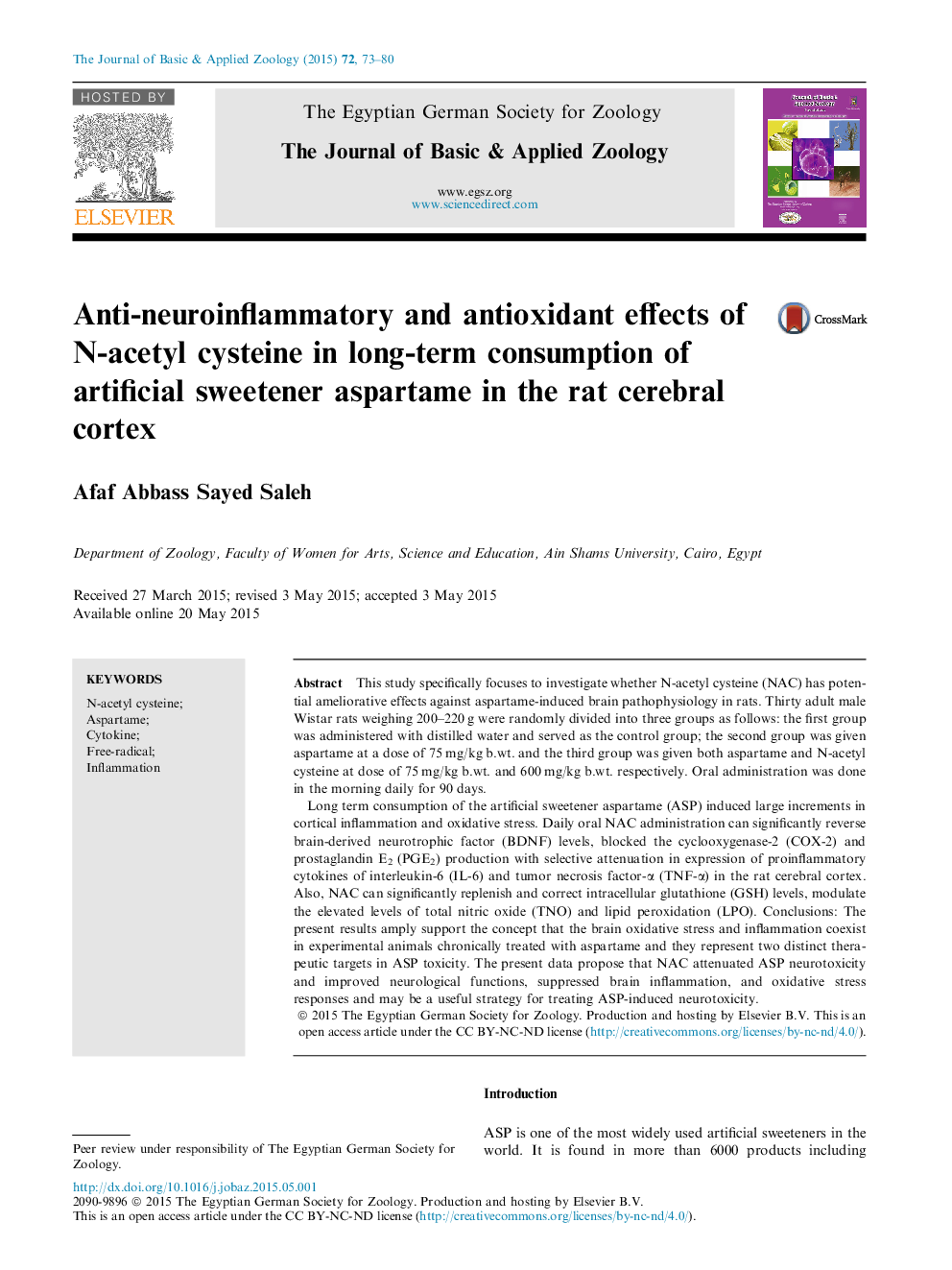| Article ID | Journal | Published Year | Pages | File Type |
|---|---|---|---|---|
| 4493397 | The Journal of Basic & Applied Zoology | 2015 | 8 Pages |
This study specifically focuses to investigate whether N-acetyl cysteine (NAC) has potential ameliorative effects against aspartame-induced brain pathophysiology in rats. Thirty adult male Wistar rats weighing 200–220 g were randomly divided into three groups as follows: the first group was administered with distilled water and served as the control group; the second group was given aspartame at a dose of 75 mg/kg b.wt. and the third group was given both aspartame and N-acetyl cysteine at dose of 75 mg/kg b.wt. and 600 mg/kg b.wt. respectively. Oral administration was done in the morning daily for 90 days.Long term consumption of the artificial sweetener aspartame (ASP) induced large increments in cortical inflammation and oxidative stress. Daily oral NAC administration can significantly reverse brain-derived neurotrophic factor (BDNF) levels, blocked the cyclooxygenase-2 (COX-2) and prostaglandin E2 (PGE2) production with selective attenuation in expression of proinflammatory cytokines of interleukin-6 (IL-6) and tumor necrosis factor-α (TNF-α) in the rat cerebral cortex. Also, NAC can significantly replenish and correct intracellular glutathione (GSH) levels, modulate the elevated levels of total nitric oxide (TNO) and lipid peroxidation (LPO). Conclusions: The present results amply support the concept that the brain oxidative stress and inflammation coexist in experimental animals chronically treated with aspartame and they represent two distinct therapeutic targets in ASP toxicity. The present data propose that NAC attenuated ASP neurotoxicity and improved neurological functions, suppressed brain inflammation, and oxidative stress responses and may be a useful strategy for treating ASP-induced neurotoxicity.
